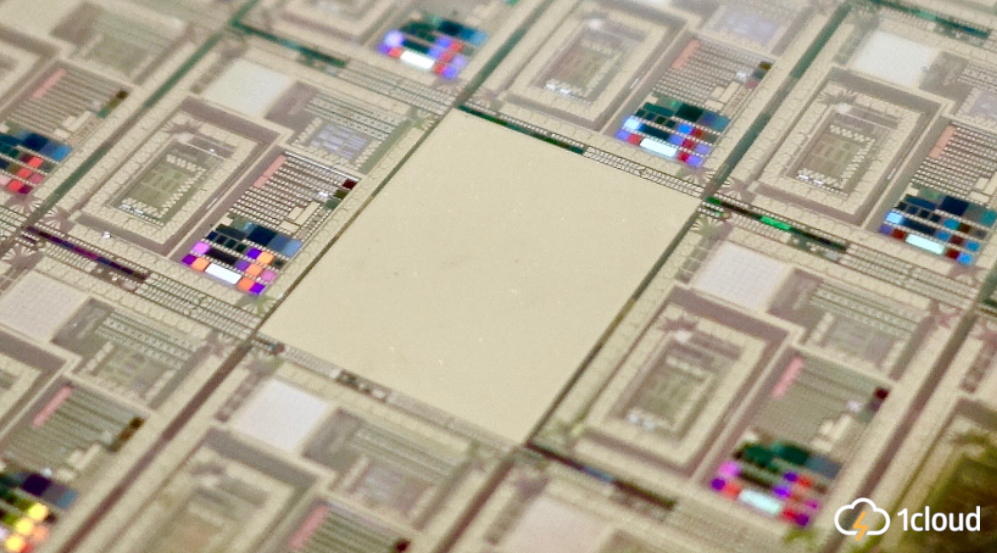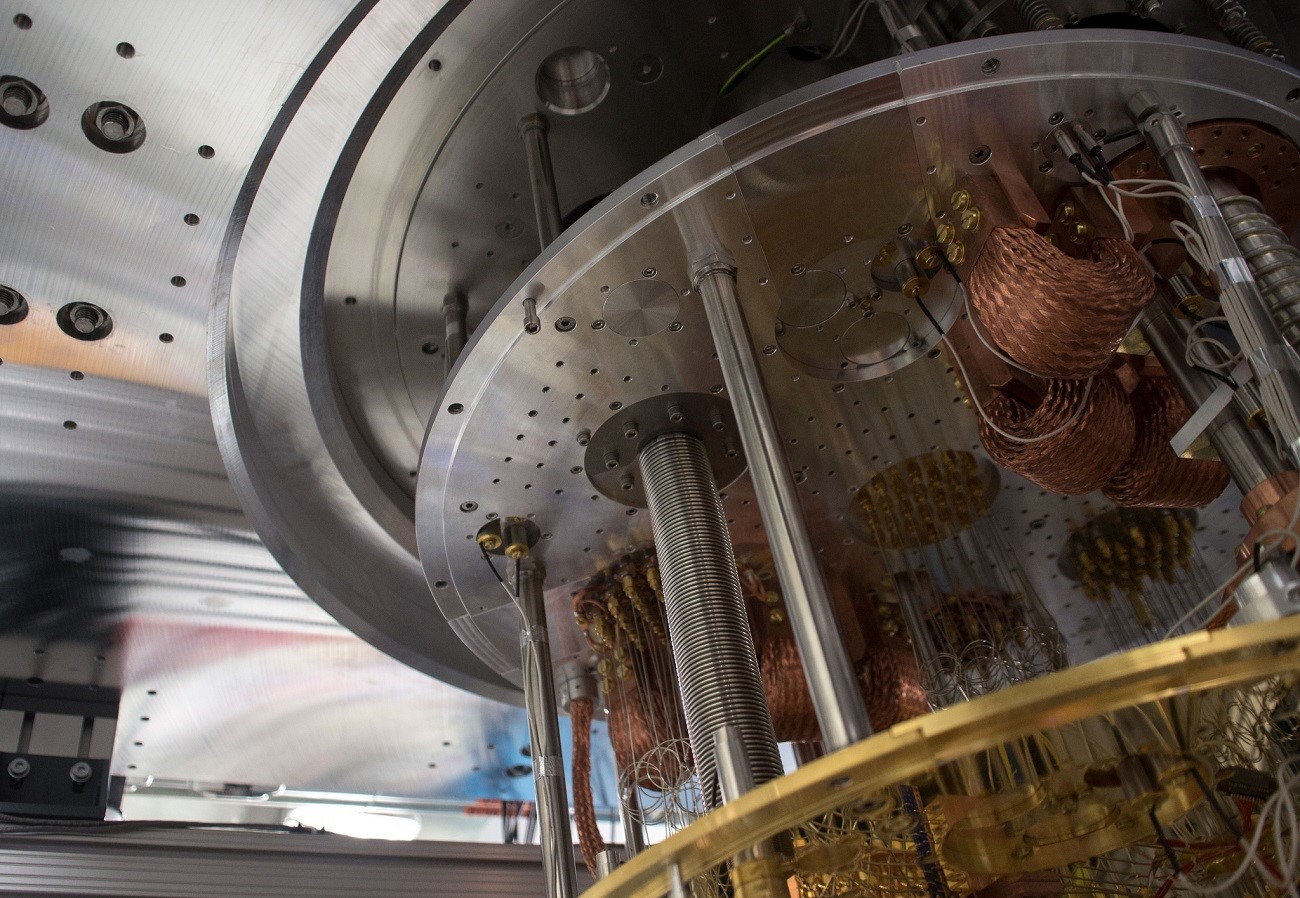About quantum computers: how different countries develop this technology
We are talking about who already uses quantum computing in the cloud and what initiatives are promoted by governments to support the industry of quantum computing.

/ Flickr / Steve Jurvetson / CC BY / Photo edited
Such quantum computers are created by such large organizations as Google, IBM, Intel and a number of small IT companies like D-Wave and startup Rigetti. Some of them provide access to their solutions for universities and research organizations. This helps them cloud infrastructure. For example, IBM and Alibaba opened access to 20-qubit and 11-qubit computers, respectively. The IBM Q and Alibaba Cloud cloud platforms are used to work with installations. The goal of these initiatives is to help engineers work with complex machine learning models and various models of real phenomena: from climate models to financial market modeling.
Canadian company D-Wave Systems also launchedyour cloud service. Her clients have access to quantum computing for a minute per month. It seems to be a bit, but for a series of tasks a quantum machine needs only a few milliseconds. We are talking about factoring large numbers and building routes - classical computers spend days and weeks on such calculations.
Several companies are already using the capabilities of the D-Wave system. For example, Airbus used computers based on qubits to create new aircraft — the necessary calculations were completed four times faster than on conventional computers. Volkswagen turned to quantum computers to study unmanned vehicle control algorithms.
It is not only IT companies that and popularize quantum computing (for example, IBM has formed asoftware community for quantum computers). The governments of many countries are beginning to promote special financial initiatives and laws aimed at the development of the quantum industry. We will discuss some of them further.
In mid-December last year, the US Senate passed a bill to create the National Quantum Initiative (NQI). The purpose of the new act is to support companies and research institutions that are working on the creation of quantum computers and networks. The NQI plan is designed for ten years, and 1.2 billion dollars will be spent on its implementation.

/ Flickr / IBM Research / CC BY-NA
Within the framework of the project, it is planned to build from two to five new research centers for the study of quantum technologies. This will be the responsibility of the US Department of Energy. It will also fund research - each center will be allocated $ 25 million annually. Also, the money will be directed to the development of educational programs for specialists in the field of quantum developments. The National Science Foundation of the United States will prepare a special educational program for university students.
A specially created body, the National Quantum Coordination Office, will be responsible for the implementation of the projects planned . Its staff will monitor research programs and deal with consulting issues.
Programs for the development of the quantum computer industry have also been created in the European Union, China and Russia. In Europe, in 2016 launched the initiative Quantum Flagship. The EU government and its member countries have allocated a billion euros to support twenty quantum computing projects. In this case, the money will go not only to create computers. Quantum Flagship includes the directions of theoretical physics and quantum metrology and communication.
One example of funded projects is QMiCS from Oxford Instruments. His goal is to create a wireless network between quantum devices.
Also financing was received by two projects of the Atos company. The task of the first is to create a 50-qubit quantum computer based on ion traps., one of the most common and stable types of qubits. The purpose of the second project is to simulate the operation of a system of 500 quantum bits. To date, only a 60-qubit computer has been simulated.
The scope of quantum computing is developing in China. In 2016, the country began to build a new research laboratory - the Chinese government allocated about a billion dollars for this. The science center will start working in 2020.
The previous financial support from the government helped Chinese scientists achieve their first successes in the field of quantum computing. In 2016, a team of researchers launched a satellite into orbit, in which communication channels are protected using quantum encryption. This technology is also used in terrestrial networks: a quantum communication channel about 2000 kilometers long was laid between Beijing and Shanghai.

/ Flickr / IBM Research / CC BY-ND
Quantum computing is also involved in Russia. In February 2018, several organizations — the Advanced Research Foundation, Vnesheconombank, Moscow State University, ANO Digital Economy — created a quantum consortium whose task is to develop a 50-qubit computer by 2021.
MSU has been associated with quantum computing before. In 2017, the university received a grant to create a center for quantum technologies. His goal is to develop a system for quantum data encryption. This direction is also dealt with at the ITMO University: for the joint project of a university and telecom companies in 2017, the government allocated 160 million rubles.
The bill of the American government was supported in the large IT companies, for example in Microsoft. According to representatives of the corporation, government support is needed to create reliable multi-qubit chips that do not allow errors in the calculations.
At the same time, government funding will help organizations that cannot pay for all the equipment necessary for research in quantum technologies.
Thanks to the support of the government, Chinese companies have achieved significant success in the field of quantum encryption. It is expected that quantum cryptography will soon develop intensively in the United States. According to forecasts , the new American law will accelerate the development of standards for quantum encryption algorithms, and by 2024 the technology may begin to be introduced into web services.
Government funding will help develop quantum technologies in Russia. It can be expected that projects sponsored by state institutions will eventually allow for the construction of large-scale quantum networks and the design of multi-quantum chips.

/ Flickr / Steve Jurvetson / CC BY / Photo edited
Who uses quantum computers in the cloud
Such quantum computers are created by such large organizations as Google, IBM, Intel and a number of small IT companies like D-Wave and startup Rigetti. Some of them provide access to their solutions for universities and research organizations. This helps them cloud infrastructure. For example, IBM and Alibaba opened access to 20-qubit and 11-qubit computers, respectively. The IBM Q and Alibaba Cloud cloud platforms are used to work with installations. The goal of these initiatives is to help engineers work with complex machine learning models and various models of real phenomena: from climate models to financial market modeling.
Canadian company D-Wave Systems also launchedyour cloud service. Her clients have access to quantum computing for a minute per month. It seems to be a bit, but for a series of tasks a quantum machine needs only a few milliseconds. We are talking about factoring large numbers and building routes - classical computers spend days and weeks on such calculations.
Several companies are already using the capabilities of the D-Wave system. For example, Airbus used computers based on qubits to create new aircraft — the necessary calculations were completed four times faster than on conventional computers. Volkswagen turned to quantum computers to study unmanned vehicle control algorithms.
It is not only IT companies that and popularize quantum computing (for example, IBM has formed asoftware community for quantum computers). The governments of many countries are beginning to promote special financial initiatives and laws aimed at the development of the quantum industry. We will discuss some of them further.
Quantum Initiative in the USA
In mid-December last year, the US Senate passed a bill to create the National Quantum Initiative (NQI). The purpose of the new act is to support companies and research institutions that are working on the creation of quantum computers and networks. The NQI plan is designed for ten years, and 1.2 billion dollars will be spent on its implementation.

/ Flickr / IBM Research / CC BY-NA
Within the framework of the project, it is planned to build from two to five new research centers for the study of quantum technologies. This will be the responsibility of the US Department of Energy. It will also fund research - each center will be allocated $ 25 million annually. Also, the money will be directed to the development of educational programs for specialists in the field of quantum developments. The National Science Foundation of the United States will prepare a special educational program for university students.
A specially created body, the National Quantum Coordination Office, will be responsible for the implementation of the projects planned . Its staff will monitor research programs and deal with consulting issues.
Initiatives of other countries
Programs for the development of the quantum computer industry have also been created in the European Union, China and Russia. In Europe, in 2016 launched the initiative Quantum Flagship. The EU government and its member countries have allocated a billion euros to support twenty quantum computing projects. In this case, the money will go not only to create computers. Quantum Flagship includes the directions of theoretical physics and quantum metrology and communication.
One example of funded projects is QMiCS from Oxford Instruments. His goal is to create a wireless network between quantum devices.
Also financing was received by two projects of the Atos company. The task of the first is to create a 50-qubit quantum computer based on ion traps., one of the most common and stable types of qubits. The purpose of the second project is to simulate the operation of a system of 500 quantum bits. To date, only a 60-qubit computer has been simulated.
The scope of quantum computing is developing in China. In 2016, the country began to build a new research laboratory - the Chinese government allocated about a billion dollars for this. The science center will start working in 2020.
The previous financial support from the government helped Chinese scientists achieve their first successes in the field of quantum computing. In 2016, a team of researchers launched a satellite into orbit, in which communication channels are protected using quantum encryption. This technology is also used in terrestrial networks: a quantum communication channel about 2000 kilometers long was laid between Beijing and Shanghai.

/ Flickr / IBM Research / CC BY-ND
Quantum computing is also involved in Russia. In February 2018, several organizations — the Advanced Research Foundation, Vnesheconombank, Moscow State University, ANO Digital Economy — created a quantum consortium whose task is to develop a 50-qubit computer by 2021.
MSU has been associated with quantum computing before. In 2017, the university received a grant to create a center for quantum technologies. His goal is to develop a system for quantum data encryption. This direction is also dealt with at the ITMO University: for the joint project of a university and telecom companies in 2017, the government allocated 160 million rubles.
Prospects for financial projects
The bill of the American government was supported in the large IT companies, for example in Microsoft. According to representatives of the corporation, government support is needed to create reliable multi-qubit chips that do not allow errors in the calculations.
“This task is one of the most important in the industry. The more qubits the processor contains, the higher the chance that they will begin to influence each other's work, create interference, - says Sergey Belkin, head of the development department at 1cloud.ru . - To achieve the zero value of errors, no one has yet succeeded. And it prevents to increase the computing power of quantum machines. ”
At the same time, government funding will help organizations that cannot pay for all the equipment necessary for research in quantum technologies.
Thanks to the support of the government, Chinese companies have achieved significant success in the field of quantum encryption. It is expected that quantum cryptography will soon develop intensively in the United States. According to forecasts , the new American law will accelerate the development of standards for quantum encryption algorithms, and by 2024 the technology may begin to be introduced into web services.
Government funding will help develop quantum technologies in Russia. It can be expected that projects sponsored by state institutions will eventually allow for the construction of large-scale quantum networks and the design of multi-quantum chips.
